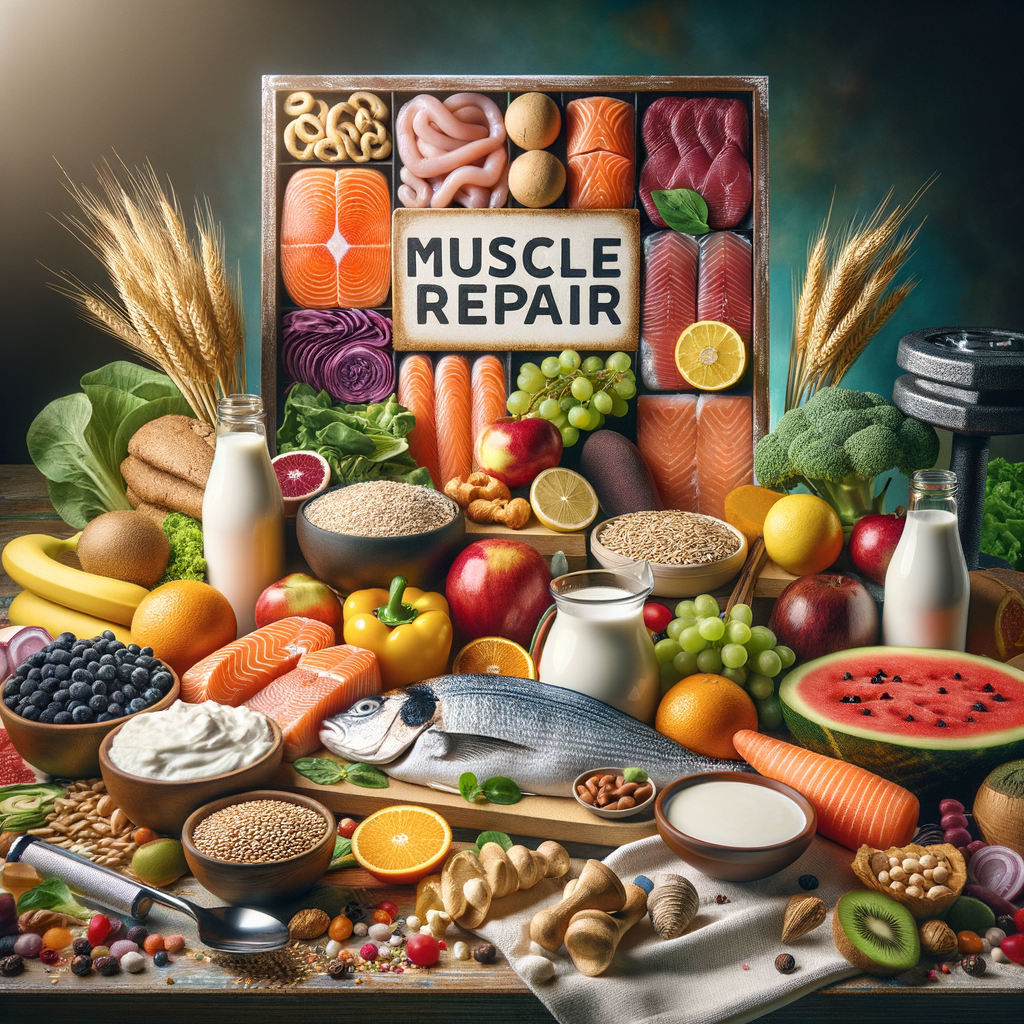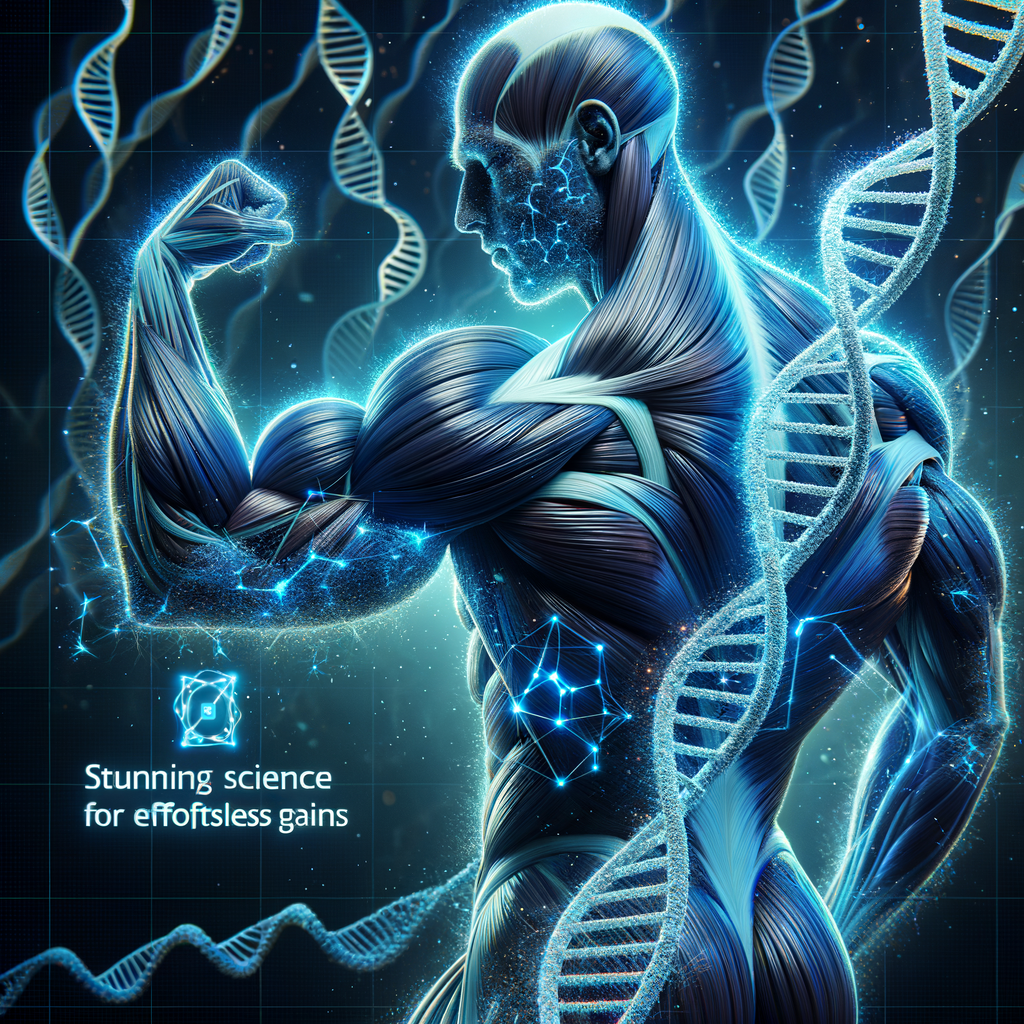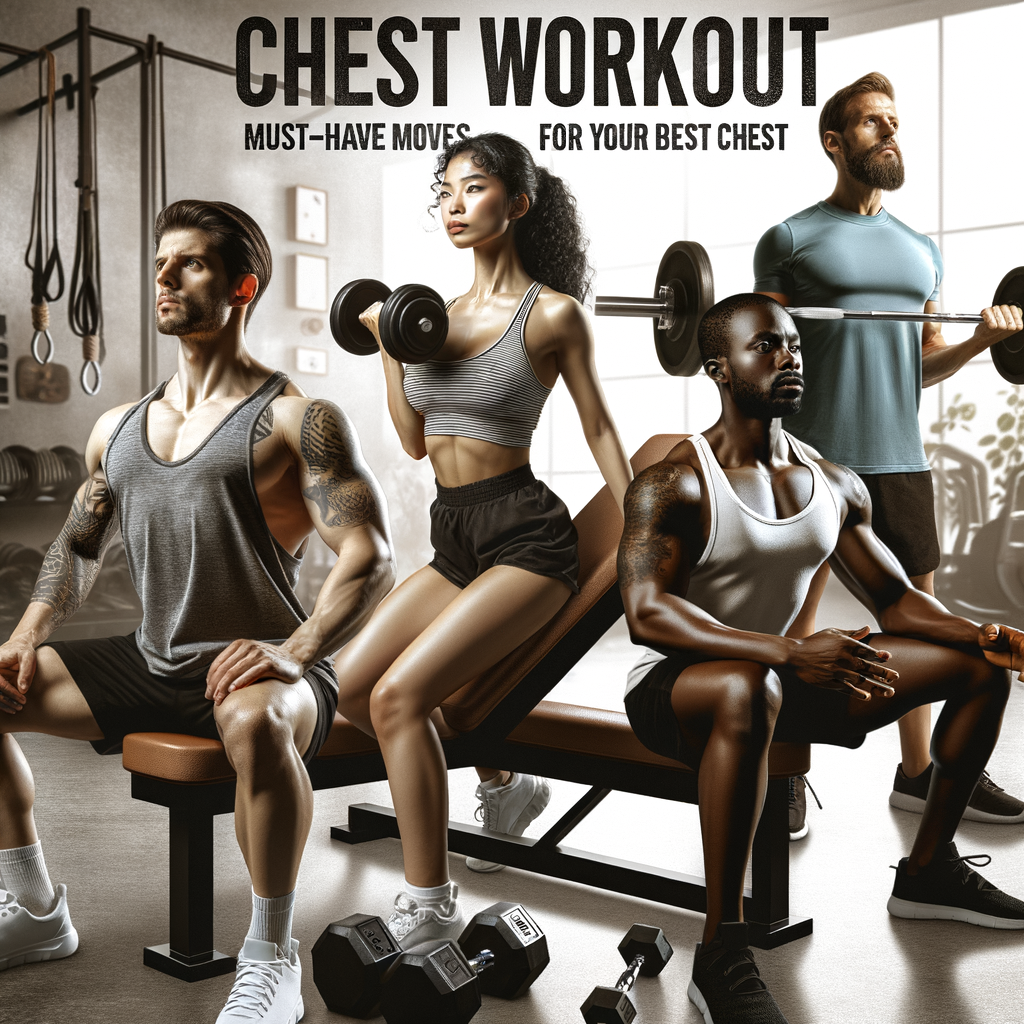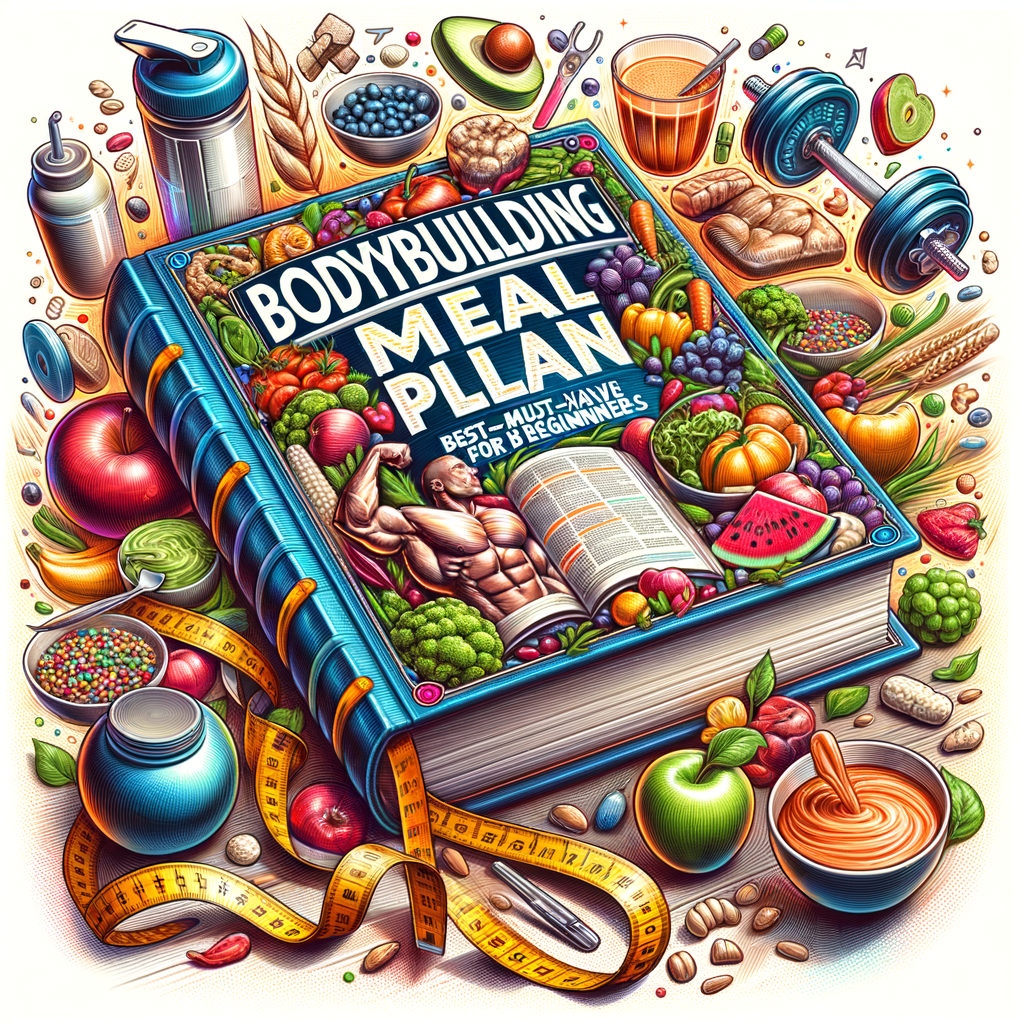- Understanding Muscle Repair
- The Role of Protein in Muscle Repair
- Types of Protein Sources
- How Much Protein Do You Need?
- Carbohydrates: Fueling Recovery
- Types of Carbohydrates
- Timing Your Carbohydrate Intake
- Healthy Fats and Their Importance
- Best Sources of Healthy Fats
- Vitamins and Minerals: The Unsung Heroes
- Key Vitamins and Minerals
- Top Muscle Repair Foods
- 1. Chicken Breast
- 2. Salmon
- 3. Quinoa
- 4. Greek Yogurt
- 5. Sweet Potatoes
- 6. Spinach
- 7. Eggs
- 8. Almonds
- 9. Oats
- 10. Berries
- Meal Planning for Recovery
- Breakfast Ideas
- Snack Ideas
- Lunch and Dinner Ideas
- Hydration: Don’t Forget the Water
- The Importance of Rest
- Relaxation Techniques
- Frequently Asked Questions
- 1. How long does it take for muscles to recover?
- 2. Is it necessary to take protein supplements?
- 3. Can I eat unhealthy foods after workouts?
- 4. What’s the best post-workout meal?
- 5. How do I know if I need more protein?
- 6. Can hydration affect muscle recovery?
- 7. What’s the difference between simple and complex carbohydrates?
- 8. Are plant proteins as effective as animal proteins?
- 9. What should I avoid during recovery?
- 10. How can I increase my nutrient absorption?
- Conclusion
- References
Understanding Muscle Repair
When you push your body during workouts or physical activities, you cause microscopic tears in your muscle fibers. This process is completely natural and even necessary for growth. However, to recover effectively, your body needs the right nutrients. Muscle repair foods play a crucial role in this recovery process. They not only help to heal your muscles but also assist in rebuilding them stronger than before.
So, what are the key nutrients involved in muscle repair? Proteins, carbohydrates, healthy fats, vitamins, and minerals all contribute to effective recovery. Each has a unique role, and it’s essential to eat a balanced diet rich in these nutrients for optimal recovery.
The Role of Protein in Muscle Repair
Protein is the star player when it comes to muscle repair. It provides the building blocks—amino acids—that your body needs to repair and grow muscles. Consuming protein-rich foods post-exercise can significantly enhance recovery.
Types of Protein Sources
1. Animal-Based: Chicken, turkey, fish, and eggs are excellent sources. They contain all essential amino acids, making them complete proteins.
2. Plant-Based: Lentils, chickpeas, beans, and quinoa offer quality protein. While most plant proteins are incomplete, combining different sources can provide all essential amino acids.
Including a mix of these protein sources helps in maximizing muscle recovery.
How Much Protein Do You Need?
Your protein needs depend on your activity level. A general guideline is around 1.2 to 2.0 grams of protein per kilogram of body weight for those involved in regular exercise. Athletes may require even more to support intense training.
Carbohydrates: Fueling Recovery
Carbohydrates are vital in replenishing glycogen stores depleted during physical activity. Your muscles rely on glycogen for fuel, so reloading this energy reserve is crucial for recovery and performance.
Types of Carbohydrates
1. Simple Carbohydrates: Found in fruits and honey, these can offer quick energy post-exercise. They help to kickstart the recovery process.
2. Complex Carbohydrates: Whole grains, beans, and vegetables provide a steady energy supply. They help sustain your energy levels throughout the day.
Choose a variety of carbs to support optimal recovery and energy levels.
Timing Your Carbohydrate Intake
Eating carbohydrates within 30 minutes to two hours post-exercise has shown to yield the best recovery results. This ensures that your body receives the necessary energy right when it needs it.
Healthy Fats and Their Importance
Healthy fats play a supportive role in muscle repair and overall health. They assist in absorbing fat-soluble vitamins and provide essential fatty acids that your body cannot produce.
Best Sources of Healthy Fats
1. Avocados: Rich in monounsaturated fats, avocados promote heart health and provide essential nutrients.
2. Nuts and Seeds: Almonds, walnuts, chia seeds, and flaxseeds are excellent sources. They contain omega-3 fatty acids, which can help reduce inflammation.
3. Olive Oil: A staple in the Mediterranean diet, olive oil boasts anti-inflammatory properties and is great for cooking or salad dressings.
Incorporating these healthy fats into your diet can be beneficial for recovery.
Vitamins and Minerals: The Unsung Heroes
Vitamins and minerals regulate various bodily functions, including muscle repair. They serve as cofactors in biochemical reactions that induce recovery.
Key Vitamins and Minerals
1. Vitamin D: Essential for calcium absorption, vitamin D plays a role in muscle function. You can obtain it from sunlight, fatty fish, and fortified foods.
2. Magnesium: Magnesia helps in protein synthesis and reduces muscle cramps. Foods rich in magnesium include leafy greens, nuts, and whole grains.
3. Vitamin C: This vitamin is vital for collagen synthesis, a protein that helps repair tissues. Citrus fruits, berries, and broccoli are excellent sources.
A balanced diet rich in these vitamins and minerals can significantly enhance muscle recovery.
Top Muscle Repair Foods
Now that we understand the nutrients involved, let’s take a closer look at some specific foods that can excel in muscle recovery.
1. Chicken Breast
Chicken breast is a lean source of protein, rich in essential amino acids. It’s versatile and easy to cook, making it a favorite for fitness enthusiasts.
2. Salmon
Salmon is not just delicious but also packed with omega-3 fatty acids. These healthy fats reduce inflammation and promote muscle recovery.
3. Quinoa
Quinoa stands out as a complete protein source among plant foods. It’s also gluten-free and loaded with complex carbohydrates.
4. Greek Yogurt
Greek yogurt is protein-rich and perfect for a post-workout snack. It also contains probiotics, promoting gut health.
5. Sweet Potatoes
Sweet potatoes are a fantastic source of complex carbohydrates and vitamins. They provide lasting energy and support muscle glycogen replenishment.
6. Spinach
Spinach contains vitamins, minerals, and antioxidants that help reduce inflammation. Incorporating spinach into your diet can boost overall recovery.
7. Eggs
Eggs are one of the most complete protein sources available. They contain essential fats and vitamins, contributing to muscle repair.
8. Almonds
A small handful of almonds provides healthy fats, protein, and magnesium. They make for an easy, portable snack to aid recovery.
9. Oats
Oats are high in fiber and sustain energy levels. They provide complex carbohydrates necessary for muscle recovery.
10. Berries
Berries are packed with antioxidants that help combat oxidative stress caused by intense exercise. Their natural sugars provide quick energy, too.
Meal Planning for Recovery
Creating meals that support muscle repair can be simple and enjoyable. Let’s look at a few meal planning ideas.
Breakfast Ideas
– Greek Yogurt Parfait: Layer Greek yogurt with mixed berries and a sprinkle of oats. This meal is high in protein and antioxidants.
– Oatmeal: Top oats with banana slices, almonds, and a drizzle of honey for a nutritious start.
Snack Ideas
– Smoothie: Blend spinach, banana, Greek yogurt, and almond milk. This provides a nutrient-packed boost.
– Nut Butter Toast: Spread almond or peanut butter on whole-grain toast and add slices of banana or berries.
Lunch and Dinner Ideas
– Grilled Chicken Salad: Combine grilled chicken, spinach, cherry tomatoes, and avocado. Dress with olive oil and lemon for a refreshing meal.
– Salmon with Quinoa: Enjoy a serving of salmon with a side of quinoa and steamed broccoli for a balanced dinner.
Hydration: Don’t Forget the Water
While muscle repair foods are essential, hydration is equally critical. Water helps transport nutrients throughout your body and aids in recovery. Dehydration can slow the recovery process, leading to muscle cramps and fatigue.
Aim to drink sufficient water throughout the day, especially before, during, and after exercise. If you engage in lengthy or intense workouts, consider electrolyte-rich beverages to replenish what you’ve lost through sweat.
The Importance of Rest
Nutrition alone is not enough for muscle recovery. Adequate rest and sleep are vital to the process. Your muscles do the majority of their repair work during deep sleep. Prioritize sleep by maintaining a consistent bedtime and creating a relaxing nighttime routine.
Relaxation Techniques
1. Stretching: Gentle stretching can alleviate muscle tension post-exercise.
2. Foam Rolling: This technique can enhance blood flow, reduce soreness, and improve flexibility.
Both practices ensure that your body remains limber and ready for your next workout.
Frequently Asked Questions
1. How long does it take for muscles to recover?
Recovery time varies but generally ranges from 24 to 72 hours, depending on the exercise intensity and individual factors.
2. Is it necessary to take protein supplements?
It’s not mandatory. Whole food sources usually provide sufficient protein for most people, but supplements can help if you struggle to meet your needs.
3. Can I eat unhealthy foods after workouts?
While it might be tempting, eating unhealthy foods can hinder recovery. Focus on nutrient-dense options for optimal results.
4. What’s the best post-workout meal?
A combination of protein and carbohydrates often makes the best post-workout meal. Chicken with sweet potatoes or a smoothie can be excellent choices.
5. How do I know if I need more protein?
If you feel fatigued, are losing strength, or aren’t recovering well, you might need more protein. Consulting a nutritionist can provide personalized guidance.
6. Can hydration affect muscle recovery?
Absolutely! Dehydration can slow recovery and lead to muscle cramps, so staying hydrated is crucial.
7. What’s the difference between simple and complex carbohydrates?
Simple carbohydrates break down quickly and provide immediate energy. Complex carbohydrates release energy slowly, making them more sustaining.
8. Are plant proteins as effective as animal proteins?
Plant proteins can be just as effective when consumed in the right combinations to include all essential amino acids.
9. What should I avoid during recovery?
Try to avoid high sugar and high-fat junk foods, excessive alcohol, and lack of sleep.
10. How can I increase my nutrient absorption?
Pairing foods rich in vitamin C with iron sources can improve iron absorption. Eating a balanced diet is always best for overall nutrient absorption.
Conclusion
Understanding muscle repair foods and their roles in recovery is essential for optimizing your fitness journey. From proteins and carbohydrates to healthy fats and vitamins, these nutrients work in harmony to support muscle healing and growth. Focus on a well-rounded diet, hydration, and adequate rest to achieve stunning recovery results. Remember that nutrition is a vital part of the puzzle, but it’s nearly ineffective without proper sleep and hydration.
By incorporating the suggested foods and practices, you can recover faster and push your physical limits. So go ahead, fuel your body with the right nutrients, and watch it soar.
—
References
– Harvard Health Publishing
– Mayo Clinic
– NutritionData
– American Council on Exercise



